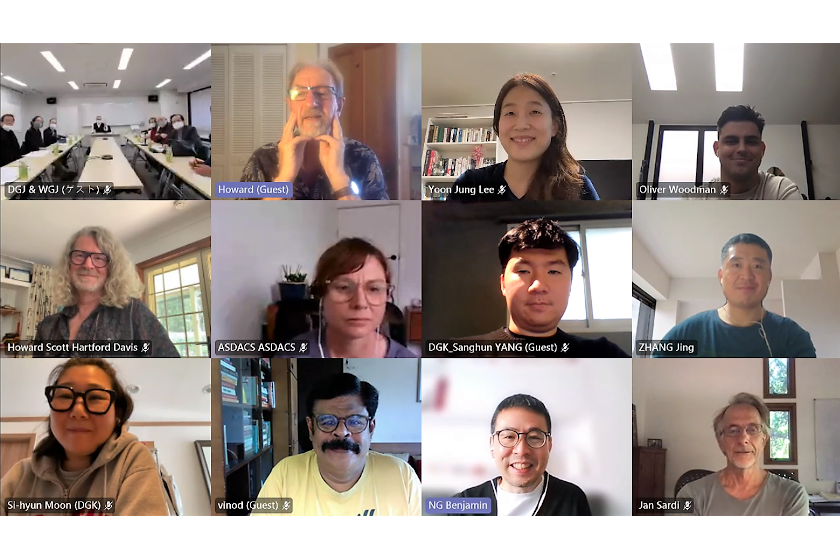
Strengthening audiovisual authors’ rights in spotlight at annual AAPA meeting
Asia-Pacific is a global powerhouse for audiovisual creation. Films such as Parasite and television series like Squid Game have made Asia-Pacific pop culture part of the global entertainment market, yet audiovisual rights lag other regions.
Launched in 2019, the Alliance of Asia-Pacific Audiovisual Writers and Directors (AAPA) is a platform for these creators to share, connect and communicate to develop and advocate for stronger copyright protections. It held its annual meeting on January 21st, 2022 to provide updates on legislative and lobbying activities seeking to establish, align and protect authors’ rights for writers and directors throughout the region. Creators and representatives of trade associations/CMOs from Australia, India, Japan, New Zealand, and South Korea attended this important annual meeting.
In the opening remarks, Sean Moon of DGK, spoke on behalf of AAPA spokesperson Min Kyudong, underscored today’s challenge of protecting authors’ rights for screenwriters and directors upon the backdrop of the successes of Asia-Pacific series like Squid Game and Hellbound. The region must work together to achieve audiovisual authors’ rights, particularly with the rise of OTT platforms and attention these platforms have drawn to the region’s creators. The newly launched AAPA website, www.aapacreators.org, is evidence of the power of this community of Asia-Pacific creators has “when we come together.”
Writers & Directors Worldwide (W&DW) President Yves Nilly, in a prepared statement, said Creators need to work closely together to lobby governments. This is why W&DW and CISAC collaborate on the international campaign for the right to remuneration and supporting regional alliances such as AAPA and APASER (the Pan-African Alliance of Screenwriters and Directors). The October 2021 global event “Lights and action on authors royalties”, organised by SAA, CISAC and W&DW, rallied policymakers to support legislative efforts to protect audiovisual screenwriters and directors.
The annual meeting also presented updates by the representatives from Australia, China, India, Japan, New Zealand, and South Korea. Benjamin Ng, CISAC Regional Director for Asia-Pacific, provided an overview about the CISAC’s lobbying efforts to improve audiovisual rights in Asia-Pacific. Cristina Perpiña-Robert Navarro, Director of Legal and Public Affairs reported about CISAC’s global audiovisual rights campaign and shared the best practices and case studies of other regions successfully obtaining and implementing this remuneration right during the annual meeting. This included CISAC case studies on Spain and Italy as well as an upcoming regional case study on Latin America. These studies provide pragmatic examples of countries that have strong legal regimes for the right, have been implemented for several years, and show the impact on the audiovisual market.
The meeting also focused on established and strong audiovisual authors’ rights regimes in the European Union. Cécile Despringre of SAA was invited to speak about the Directive on Copyright in the Digital Single Market and its implementation across EU member states, She illustrated the mechanisms related to appropriate and proportionate remuneration, the use of protected content by OCSSPs (online content-sharing service providers), and collective licensing as well as the status of implementing these mechanisms across countries.
